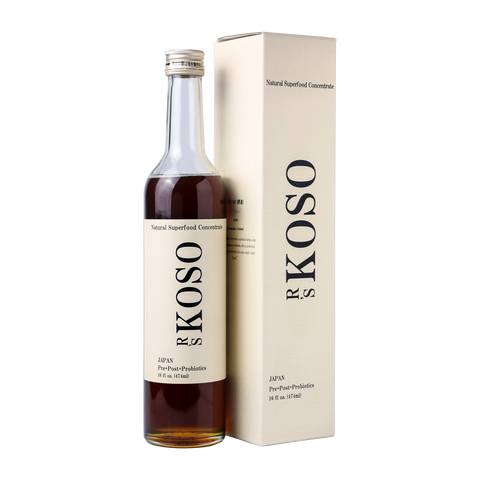When we think about hormones and their impact on our health, we often overlook the role of our gut. But with growing recent research suggesting the connection between gut health and the balance of hormones, we really should be giving our gut health a closer look.
What is testosterone?
Testosterone is a sex hormone, often referred to as the "male hormone," which plays a crucial role in men's health. Hormones are the body's chemical messengers. They travel from one organ or another place in the body, usually through the bloodstream, and affect many different bodily processes.
Testosterone is most often associated with sex drive and plays a vital role in sperm production. It also influences everything from muscle mass and bone density to mood and energy levels. Maintaining the right balance of testosterone is key to promoting physical and mental well-being. But what does this have to do with your gut?
The Gut- Hormone Connection
Your gut is home to trillions of microorganisms, collectively known as the gut microbiome. These tiny inhabitants are involved in many essential bodily functions, including the regulation of hormones.
There is now growing evidence showing the alteration of your gut microbiome is associated with metabolic diseases such as obesity and diabetes. The development and prevalence of certain metabolic diseases are different in men and women. This suggests that sex steroids such as testosterone are thought to play a key role in the sexual dimorphism of the gut microbiome.
The modern diet with processed food induces obesity by triggering inflammation, which disrupts the balance of beneficial gut bacteria, causing increased intestinal permeability (known as leaky gut syndrome). This heightened permeability allows bacterial endotoxin, a potent immune system activator found in bacterial cell walls, to escape into the body. The trans-mucosal migration of endotoxin directly contributes to reduced testosterone levels by interfering with its production in the testes.
A study comparing male patients with type 2 diabetes with testosterone deficiency and type 2 diabetes patients alone without deficiency shows that there was a noticeable difference in the gut microbe composition between the two groups. The low serum testosterone patients tend to have an increased abundance of pathogens such as Gemella, Bergeyella, Parvimonas, and Actinomyces, which leads to the occurrence and development of testosterone deficiency.
In a mice study of probiotics and obesity, it was noted the discovery of male mice being routinely fed lactic acid bacteria (probiotic source) had larger testicles and increased serum testosterone levels compared to their age-matched controls.
This further study led to the discovery that dietary L. reuteri or other probiotic supplementation may aid in hypogonadism; which occurs when the body's sex glands produce little or no hormones.
How can I balance my hormones?
Diet is key
Eating fiber, fruits, and vegetables can promote a healthy gut microbiome. Fiber is particularly important because it nourishes beneficial gut bacteria. Additionally, fermented foods like yogurt, koso, and sauerkraut contain high probiotics that can promote gut health.
Limit processed food and sugar
These foods can disrupt the balance of your gut microbiome and also cause inflammation.
Manage stress and stay active
Chronic stress can disrupt gut health and hormone regulation. Yoga, meditation, and regular exercise can help manage stress levels.
Get enough sleep
Quality sleep is vital for overall health, including hormone balance. Aim for 7-9 hours of restful sleep each night.
Supplement in probiotics
Probiotics supplementation is beneficial in maintaining a healthy gut microbiome. R’s KOSO is a Japanese superfood that has an abundance of probiotics, as well as prebiotics and postbiotics. It is fermented with 100+ ingredients such as vegetables, fruits, seaweed, and mushrooms through a 1 year fermentation process. It is 100% natural, gluten-free, and dairy-free.
Let’s get started!

